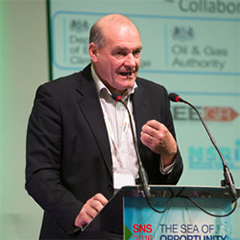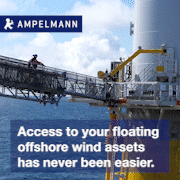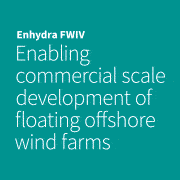Great Yarmouth has a “golden opportunity” to be the world-class centre of excellence for the multi-billion pound decommissioning programme in the southern North Sea (SNS) and beyond, industry leaders announced.
The town’s industry and port is prime to become the decommissioning pioneer for offshore platforms and wells in the SNS as well as in the similar shallow waters of the Netherlands, Denmark and further areas, the energy supply chain was told at a conference focussing on the SNS.
Companies in the East of England should show what they could do by working together to offer the full spread of cost-effective services to lead best value efficient decommissioning in the SNS.
Bill Cattanach, head of supply chain at the Oil & Gas Authority, sent a message to the East of England Energy Group (EEEGR) Decommissioning Special Interest Group that the SNS should be the trial ground for North Sea decommissioning as a whole.
“If we do this right, we can take it to be world class and be the centre of excellence, not just in the SNS, but for shallow water decommissioning in the Netherlands, Denmark and beyond, ” Julian Manning, chair of the SIG told the group on Mr Cattanach’s behalf.
“The UK SNS is an ideal trialing ground for decommissioning in the sense that it is gas, has easier to handle infrastructure, and much more accessible for companies to collaborate and campaign.
“With the right focus, the UK SNS has the opportunity to become a world class leading resource in Decommissioning. It has the potential for a tremendous head start over adjacent areas”
Tim Eley, board director of Decom North Sea, said all ports along the east coast wanted to be involved in the North Sea dismantling and plugging and abandonment (P&A)programme.
Great Yarmouth has a purpose-built decommissioning yard developed by Peterson and partner Veolia, which opened last year
“I would love to see Great Yarmouth become a centre of excellence,” he said.
About £16-17bn was expected to be spent on decommissioning in the next decade – with only 16 per cent spent in the SNS, with half of the costs funding well plugging and abandonment.
“There are 10 ports along the east coast and only one per cent of the decommissioning spend will be spent onshore, so to go for one centre of excellence at Great Yarmouth rather than spread that down the coast makes sense, and by collaborating and bringing services together for decommissioning.”
Mr Manning said the opportunity was in the region’s hands to harness the opportunities ahead.
“We need to be optimistic. This is a great opportunity and we really need to try to work on that.”
Only 10 per cent of the platforms have been decommissioned so far and most of the major operators had decommissioning plans, Mr Eley said.
“In Great Yarmouth, we have the golden opportunity. The platforms in the SNS are smaller and the SNS lends itself to piece small decommissioning in shallow water.”
In piece small operations structures are decommissioned offshore and shipped into shore by vessels for further processing segregation and waste management.
The government is demanding decommissioning costs are cut by 40 per cent and Great Yarmouth can come up with a cost effective solution, the SIG at SNS2016 was told.
“With careful planning, clever engineeers and engineering solutions, there are many unmanned installations that can be taken away. The topsides can be removed without the need for heavy lifters,” Mr Eley said.
Earlier in the SNS2016 conference, Deirdre Michie, chief executive of Oil & Gas UK said the SNS had “all the right ingredients to become a centre of excellence for the UK” in decommmissioning.
Paul Yeats, SIG vice chair, said savings could be made by multi-client campaigns to plug and abandon clusters of wells and by piece small decommissioning scopes.
Great Yarmouth offshore engineering company owner Dave Rowan said his company, EPIC International, had been involved in decommissioning for many years.
It had recently developed a model to ‘mothball’ a five-well gas platform in the North Sea, shutting it down, making it safe and monitoring it by satellite from his Great Yarmouth office as a ‘halfway house’ to decommission.
The Late in Life Operations (LILO) process from May to November completed isolation, cleaned the platform and left it in a state for production of its last reserves to continue or fully decommission.
“It has set a standard that is accepted by the HSE, DECC and OGA and has set a precendent.”
About EEEGR: The East of England Energy Group (EEEGR) is the industry association for energy in the East of England, representing over 350 members across the supply chain. It is a non-profit, business-led group committed to the sustained development of the energy sector in the region and the continued success of our members.





























